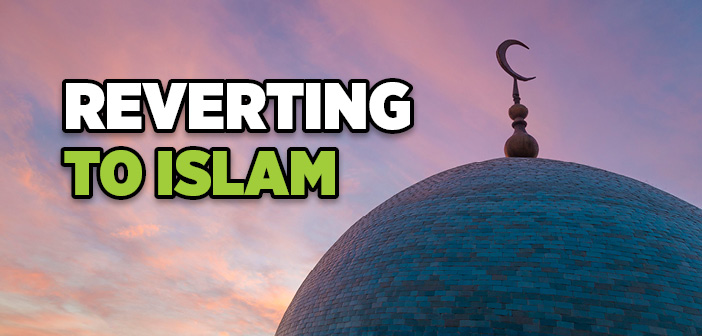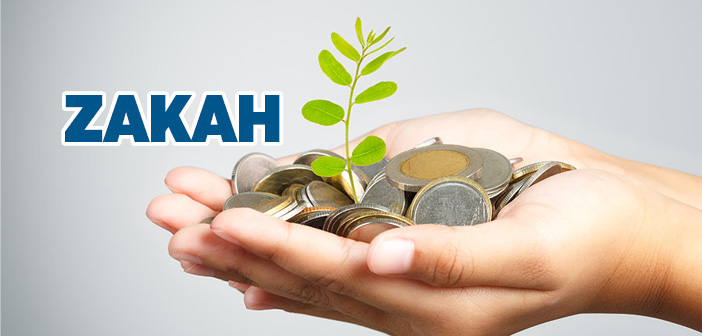What is zakah in islam? What does zakah means in islam?
Zakah is an Arabic term with the root meaning, ‘to purify’. Zakah is a form of alms obligatory on both males and females, in order for them to purify their wealth by giving to those who are less fortunate. Allah, the Almighty has ordered the payment of zakat in many verses of the Qur’an, such as, “And keep up prayer and pay the poor rate…”[1] and “… And We revealed to them the doing of good deeds, the establishment of prayer, and the giving of zakah”[2] The obligatory alms is due on the wealth which has been saved during the time period of one year; in other words, it is due on money that has not been spent towards meeting one’s needs. It is important to note that zakah is obligatory upon different forms of wealth, such as, money, crops, fruits, livestock and treasures found in the earth. In today’s world, the most common form of wealth is that of money. Zakah has to be paid on one’s money if that amount of money reaches the minimum required for zakah and if it has been in the person’s possession for the time of a year.
According to Islam, Muslims believe that Allah is the One who creates the wealth and fortune that people earn through working; He is also the One who bestows the wealth on His human beings for the service of humanity. Therefore, there is a responsibility on the people to spend a certain amount of their wealth that Allah, may He be glorified and exalted, has bestowed upon them for His sake. Moreover, since it is Allah the Almighty Who has ordered the payment of zakah, it becomes a responsibility on the believers to carry out this command of their Creator. Islam also recognizes that zakah is a tool that brings blessings for the wealth and goods of people; it allows their wealth to increase and grow. Allah says in the Qur’an, “If you are grateful, I will surely increase you in favor”[3] and “And whatsoever you spend of anything (in Allah’s Cause), He will replace it (with something better).” [4]In some ways, zakah pushes Muslims to utilize their money and turn it into an investment, because those who cannot utilize their wealth, are obliged to pay more zakah every year. In this manner, the obligatory alms aid in keeping the economy alive, by preventing people from hoarding their money; furthermore, it ensures the flow of capital and removes the extreme imbalances that can result due to the difference of wealth between the rich and the poor. In other words zakah allows for the establishment of peace in the community. At the same time, spiritually, zakah purifies the wealth and protects the individual from morally questionable traits, such as, stinginess and greed; instead it encourages the Muslim to be a giving and generous person. Allah the Almighty states in the Qur’an, “Take, from their wealth a charity (zakah) by which you purify them and cause them increase.”[5]
There are certain conditions that need to be met in order for zakah to be obligatory upon someone. Some of these conditions are related to the person who is going to pay zakah, others are related to the goods out of which the zakat is going to be paid. The person who will give the zakah must be a Muslim and he/she must be free. For those who have not reached puberty or who are not sane, it is obligatory upon their guardians to pay zakah on their behalf out of their wealth. For zakah to be obligatory, it is mandatory that the person is free of debt. The minimum required holding of wealth before one is obligated to pay zakah is known as the nisab. The wealth that is payable as zakah, must reach the amount of nisab or must be equal to, or more than the value of nisab. If a person’s wealth is below the value of nisab, they are not obligated to pay zakah. In fact there is a distinct nisab for gold and for silver. In the case of gold, silver or currency (including bank savings), the nisab should have been in the person’s possession for a period of one year. In present day, most people hold currency rather than gold or silver as savings, therefore, the specific nisab is commonly based upon the currency’s purchasing power, which is actually backed by gold and silver. Information regarding the specific amount for nisab is usually available through the internet. There is no zakah on precious stones that are not gold or silver. Moreover, personal possessions, such as, furniture, horses, cars, honey, milk etc. is not subject to the payment of zakah, provided that such possessions are not kept for the purpose of trade.
The nisab for the wealth and savings of an individual is calculated as two and a half percent of the total cash value of such items. Furthermore, zakah must be paid once a year on livestock; such as cows, camels, sheep and goats; when their number has reached the level of the nisab. There is no zakat on donkeys and mules. For example, if one owns 30 to 39 cows, then the zakah to be given is 1 two-year-old cow, and, if 40 to 59 cows are owned, then I three-year-old cow is to be paid as zakah. Similarly, if the number of sheep or goats owned are 40 to 120, then the zakah to be given is 1 one-year-old sheep or goat, if 101 to 200 sheep are owned, then 2 sheep or goats are to be given as zakah, if 201 to 399 sheep are owned, then 3 sheep or goats are to be paid as zakah and if 400 and above sheep or goats are owned, then 1 sheep or goat for each hundred owned is to be paid as zakah. Zakah is also to be paid on crops whenever a crop is harvested. It is to be paid on wheat, rice and other grains, all kinds of beans and peas, groundnut, dates, olives, and their equivalents in various parts of the world. As recommended by the Prophet (peace and blessings be upon him) the nisab for farm produce if the land is irrigated naturally (by a spring, rainfall, or a river) is one-tenth, and if it is irrigated by drawing water from a well or dam, the nisab is one half of one-tenth. Zakah is not required on fruits and vegetables that perish quickly when picked, such as, oranges, bananas, pineapples, mangoes, guavas, lettuce spinach, tomatoes, peppers, etc.
The manner in which to pay zakah is to make an intention at the time of giving it but there is no need to express verbally to those who receive it, that it is zakah.[6] In Islam zakah has to be distributed to specific categories of people. Allah has mentioned those categories in the following verse: “The alms are only for the poor, the needy, those employed to collect (the funds), and to attract the hearts of those who have been inclined (towards Islam); and to free the captives; and for those in debt; and for Allah’s Cause, and for the wayfarer (a traveler who is cut off from everything); a duty imposed by Allah. And Allah is the All-Knower, the All-Wise.”[7] In this verse, the poor mean, the people who do not have enough food to eat for a year. The needy, cover the people who do not own anything at all. The latter people are in more need than the poor. Those employed to collect the zakah i.e. the collectors that participate in every job concerning the collection and the distribution of the zakah, receive a specified portion of the collected zakah as salary in exchange for the service they carry out; they are paid a specified portion of the zakah even if they may be wealthy and well off financially. Zakah is also distributable to people whose hearts have been inclined towards Islam i.e. the non-believers, in the hope that they will become Muslim by seeing the good of the Muslim society; zakah can also be paid to Muslims who are new to Islam, in the hope that their choice will be strengthened, or, in the case that these new Muslims may have suffered financial or other loss due to the rejection and persecution by their people. In the past when the taking of war prisoners and slavery was wide spread, zakah was distributed to such Muslims who had been taken as slaves or prisoners of war, with the purpose of empowering them to buy their own freedom. The sixth category of people to receive the zakah, are those who are weighed down with debts but they lack the means to pay off these debts. The seventh category is specified for those who are on the Path of Allah; this covers all the uses of money for the defense and propagation of Islam. In relation to this it can be stated that the Islamic organizations of present day, dedicated to spreading the message of Islam, are eligible to receive zakah. Finally, the wayfarers, refers to the people who are left stranded during their journey because their money has run out and they are unable to reach their homeland. In the categories mentioned above, with the exception of those whose hearts will be attracted to Islam-, it is required for these people to be free, Muslim and not to be of the Hashemite lineage. It is not obligatory for the zakah to be distributed equally amongst these eight groups of people; it is possible for the zakah to be given to only one person or to one category. In addition, it is possible to use the zakah to assist a destitute person who has trouble meeting their needs of paying their rent, by making them a homeowner.
Normal charity which is called, ‘sadaqa’ in Islam, is also strongly recommended to Muslims; sadaqa can be given anywhere and at any time. Sadaqa may be in the form of money, food, clothing or even a deed. The Prophet Muhammad (peace and blessings be upon him) mentioned that an act of kindness can also be considered sadaqa (charity). In other words, removing harmful objects from the road, helping someone to load his vehicle or even smiling at someone is a form of sadaqa. Therefore, every person, whether rich or poor, has the means to give sadaqa, i.e. to help his or her relatives, neighbors and other people, in order to gain Allah’s pleasure.
[1] Q.2:43; 4:77; l4:65[2]. Q. 21:73[3].Q. 14:7[4].Q. 34:39[5].Q. 9:103[6].According to Hanafis and Malikis, it is better if zakah is given secretly so that the receiver is not humiliated since it may hurt their feelings and also so that this act of generosity is not openly shown to everyone. However, according to the Shafi’i and Hanbali madhhabs, it is more appropriate for the zakah to be given openly in order to encourage people to implement this ‘ibādah.[7] Q. 9:60
Source: Islam For New Muslims An Educational Guide,Assoc. Prof. Amjad M. Hussain, Erkam Publications





